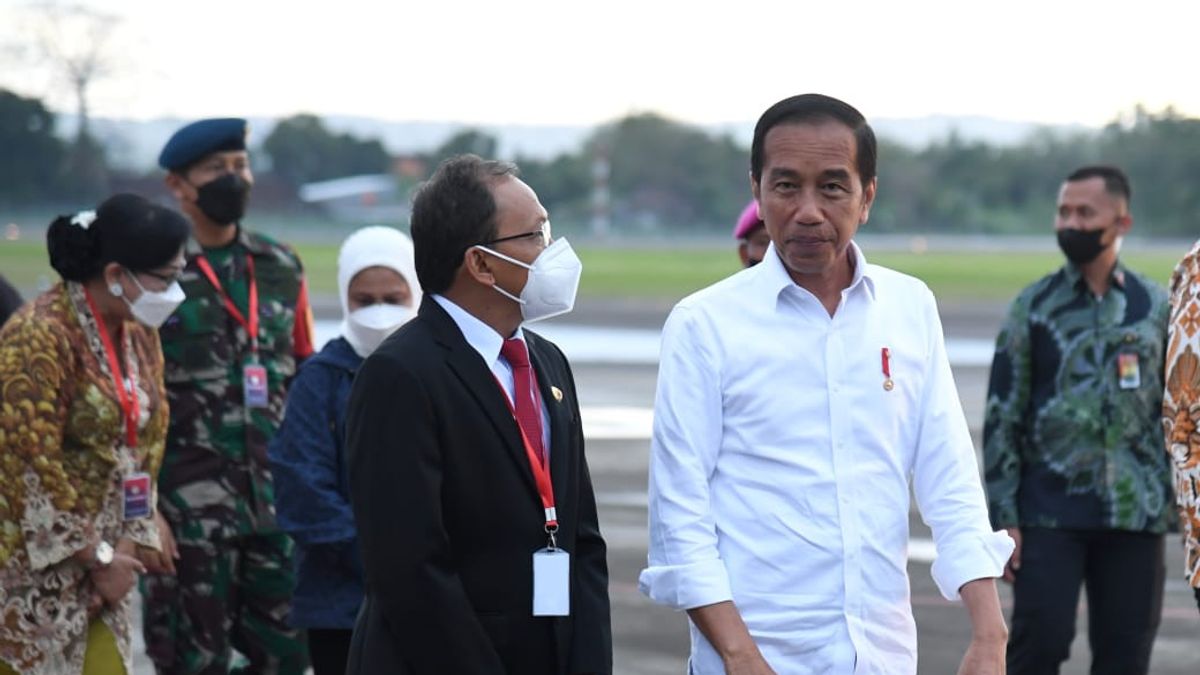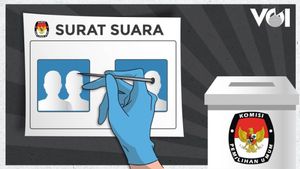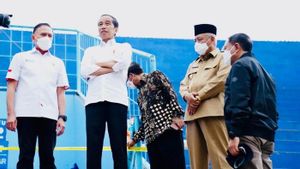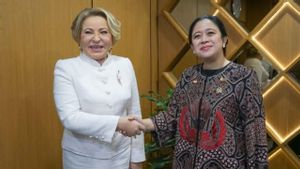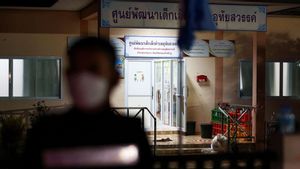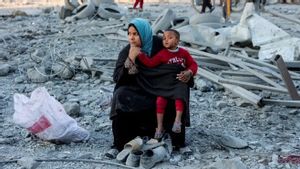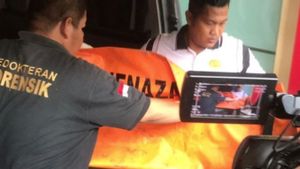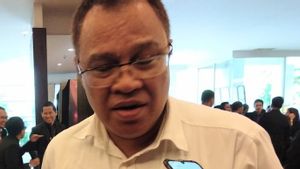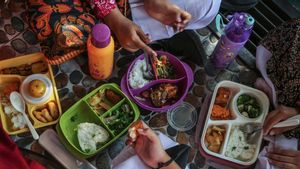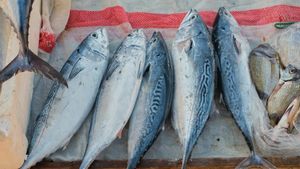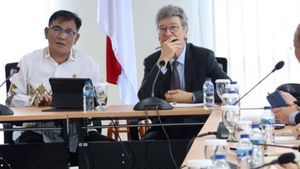JAKARTA - Indonesia will take a leading role in building an inclusive creative economy ecosystem, encouraging a greater role for the creative economy in global economic recovery. The creative economy sector can be a solution to improve the standard of living of the community in a broad and sustainable manner because it is able to break down geographical boundaries, gender, race, and economic strata.
That is what President Jokowi explained when he opened the 2022 World Creative Economy Third Conference at the Bali International Convention Center, Thursday (6/10).
“I believe that the creative economy in Indonesia and many other countries will become the backbone of the economy in the future, getting stronger and being counted as an inclusive economic force. The development of the creative economy must continue to be encouraged so that it becomes a futuristic sector, grows faster, bigger, and more advanced," he said.
Indonesia has proven it. While the whole world is limiting human physical mobility due to the pandemic, the mobility of creative economy works continues without a hitch.
In 2020, creative products from micro, small and medium enterprises in Indonesia could contribute US$18.8 billion to Indonesia's Gross Domestic Product (GDP). Of the 17 sub-sectors of the creative economy, fashion, craft, and culinary commodities are the most prominent.

In fact, the Minister of Tourism and Creative Economy (Menparekraf) Sandiaga Uno claimed that the contribution of Indonesia's creative economy to GDP was in the top three in the world.
"We are now in third place in the world, after America with Hollywood in the first place, then South Korea with K-pop in second," said Sandiaga during a webinar in August 2021.
In 2021, that number will increase again to 23.9 billion US dollars. Fashion commodities contributed 61.6 percent, crafts 31 percent, and culinary 7 percent.
Based on the book Ekonomi Kreatif: Kekuatan Baru Indonesia Menuju 2025 (Kemenparekraf 2014), handicrafts are defined as part of applied art which is a meeting point between art and design originating from traditional heritage or contemporary ideas whose results can be in the form of works of art, products functional, ornamental and decorative objects, and can be grouped based on the material and exploration of the technical tools used, and also from the thematic products.
"Besides these three commodities, there are still commodities such as game applications, television, film, radio, photography, advertising, publishing, performing arts, and fine arts which are also encouraged to become the leading commodities of the creative economy," said Sandi in a Weekly Press Briefing, in August 2022.
Film and Music Potential
Not only in fashion, culinary and craft commodities, but Indonesia also has great potential in film commodities. According to Filmindonesia.or.id data, in the January-March 2020 period alone, there were 28 Indonesian film titles showing in theaters with an audience of 12.5 million.
Then, in 2022, the movie KKN Desa Penari was claimed to be the highest Indonesian film with an audience of more than 9 million people only in the period of August 2022.
Not only on a national scale, but many Indonesian films have also won achievements at the international level. For example, the film Yuni, directed by Kamila Andini in 2021, won the Platform Prize at the Toronto International Film Festival.
Then, the film Seperti Dendam, Rindu Harus Dibayar Tuntas directed by Edwin in 2021 million won the Golden Leopard, as the highest award at the Locarno Film Festival in Switzerland.
The success of the Family Sunday Movie (FSM) is also proof that the Indonesian film industry can become a leading commodity for the creative economy in Indonesia. In just 11 days, starting from February 2-12, 2022, there have been 215 films registered.

Sandiaga Uno also admitted, "Film is one of the sub-sectors that is proven to quickly absorb a lot of workers, has a multiplier effect to accelerate economic recovery, contribute to community empowerment and independence."
Family Sunday Movie is a manifestation of the commitment of the Ministry of Tourism and Creative Economy/Tourism and Creative Economy Agency to facilitate, expand the network of filmmakers, support the local film community, and give birth to a new generation that will later become the driving force of the creative industry in Indonesia.
The spirit of Family Sunday Movie is to become a forum for local film actors to produce quality original works.
Likewise in music commodities. According to the Economic Coordinator of the Indonesian Embassy in Singapore, Hastin A.B. Dumadi, Indonesia has many talents in music. Currently, many Indonesian business groups are willing to invest in this commodity. They can bring Rich Brian and Niki Zefanya to become singers who are quite widely known in foreign countries.
There are also Indonesian businessmen who do not hesitate to encourage music groups such as Voice of Baceprot from Garut to perform at foreign events.
"If the Indonesian government, entrepreneurs, and young Indonesian talents can collaborate in a more organized creative economy orchestration, surely Indonesia will have BTS or films or drama series that are worldwide as well as South Korea's success in doing so," said Hastin in his article Menggali Kekuatan Ekonomi Kreatif.
South Korean Step
According to Hastin, South Korea has been aggressively promoting the advancement of the creative economy since the early 2000s. Efforts to encourage the creative economy was even more intense when in 2005, Park Ji-sung was signed by the football club Manchester United.
Park Geun-hye, who was named President of South Korea in 2013, is also serious about making the creative sector a priority for her government. Priorities include creating new jobs and markets, strengthening software development, realizing a creative economy that emphasizes the principles of openness and sharing, and realizing the establishment of start-ups.
"Interestingly, President Park has specifically prioritized the promotion of K-Move where South Korean youth are expected to move the world," he said.

President Park even formed the Ministry of Science, Information and Communication Technology, and Future Development Planning. President Park also formed 22 creative economy task forces, established a number of regulations, allocated strong funding for ecosystem development, and involved strong private participation.
“A close combination and collaboration between government, business, and talent is built. This is the main strength of South Korea so that it is able to make the creative economy as one of the important national economic forces as well as an important soft power in the diplomacy of the ginseng country," added Hastin.
SEE ALSO:
The English, Chinese, Japanese, Arabic, and French versions are automatically generated by the AI. So there may still be inaccuracies in translating, please always see Indonesian as our main language. (system supported by DigitalSiber.id)
